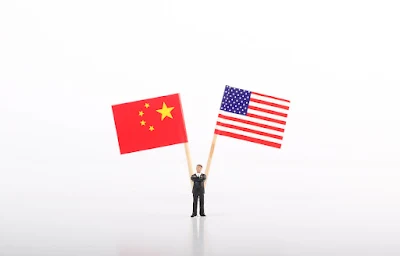Ever had a small annoyance that seemed bigger than it should? Just like our everyday "pet peeves", global superpowers like the USA, India, and China have their own versions. Let me walk through the history of this social term sensation "Pet Peeve". Also, understand how can be a country be the exact synonym of the word! Keep reading to know it's savage meaning and golabal implications.
What is a Pet Peeve?
A "pet peeve" is something that really annoys or bothers someone. It's like when you hear a sound that makes your skin crawl, like nails on a chalkboard. It's those little things that can really get on our nerves, even if they're small.
Why Pet Peeves Matter?
Knowing our "pet peeves" is important because it helps us understand what really bothers us. When we recognize them, we can handle our feelings better and talk about them with others. It's like knowing what buttons not to push. And if we know what annoys our friends or family, we can be nicer and avoid those things around them.
Two-Asian Giant Relations Like a Coster Ride
For Americans, trying to grasp the relationship between India and China is like watching a really intense TV show. It's packed with surprises, ups and downs, and you never really know what's coming next because of their complex past and ongoing issues.
USA's Balancing Act
Think of the USA as a juggler in Asia. They're close with India, ensuring they don't dominate too much, and also working to prevent other big Asian countries from becoming too powerful. But why does the USA spend so much money in places like Pakistan, supporting groups that challenge the world's biggest democracy? It's confusing because the USA claims to defend democracies. It's a bit contradictory.
While India and the USA get along, America has a complicated relationship with China. China is their main rival for global dominance. So, the U.S. is always trying to balance things out in this region.
Why China's Global Footprint Matters?
Case Study: The Galwan Valley Clash
Picture a heated neighborhood dispute. The Galwan Valley clash in 2020 was a stark reminder of simmering tensions. Till date, discussions are going on without any solution and many other ongoing issues about Chinese brands being banned in India. News're coming that Chinese companies are'nt even allowed in sponsorship bidding of World's biggest Cricket leage "IPL". Not only did it test India-China ties, but it also caught the attention of the U.S., adding another layer to the story.
Dialogue is the only solution
Navigating the Future
As we navigate the complexities ahead, from climate issues to technological advancements, collaboration becomes key. For Nations, recognizing and respecting global "pet peeves" is crucial for fostering positive relations.
In our interconnected world, understanding each other's "pet peeves" offers a roadmap to smoother relations. By identifying them, you can be prepared, adjust your mindsent accordingly to convert the deals. Let's hope all these super powers and the broader world, empathy, dialogue, and mutual respect pave the way for a brighter future.
🔺🔺🔴🍎READ MORE...🔺🔺🔴🍎



.jpg)




0 Comments